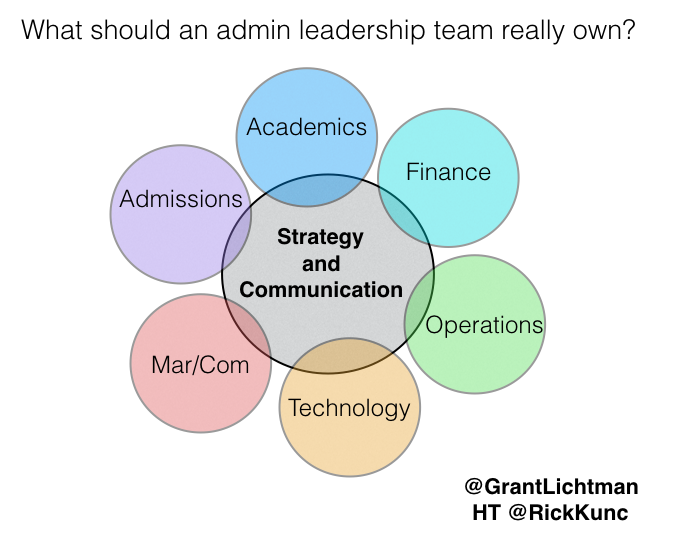 I have not visited as many public schools on this trip as I would have liked, but each one has something to offer all of us, public or private. Today’s visit at Townview Center Magnet in Dallas was no exception. Innovation means different things to different organizations, but for all schools it should mean changing what and how we teach to prepare the students for their future instead of for our past. Aaron Baldridge, with the support of his principal Tiffany Huitt, is doing just that. I first blogged about Aaron and Townview last spring, and it was an honor to sit in with two of his classes today. Full and very happy disclosure: Aaron uses my book, The Falconer, in his class, but he wrote the course before he had ever heard of my work. Simply, Aaron realized that preparing our students for their future means the same thing to him and his students today as it meant for me and mine a decade ago. Can public schools teach way beyond standards, beyond what some private schools consider highly progressive? Read on!
I have not visited as many public schools on this trip as I would have liked, but each one has something to offer all of us, public or private. Today’s visit at Townview Center Magnet in Dallas was no exception. Innovation means different things to different organizations, but for all schools it should mean changing what and how we teach to prepare the students for their future instead of for our past. Aaron Baldridge, with the support of his principal Tiffany Huitt, is doing just that. I first blogged about Aaron and Townview last spring, and it was an honor to sit in with two of his classes today. Full and very happy disclosure: Aaron uses my book, The Falconer, in his class, but he wrote the course before he had ever heard of my work. Simply, Aaron realized that preparing our students for their future means the same thing to him and his students today as it meant for me and mine a decade ago. Can public schools teach way beyond standards, beyond what some private schools consider highly progressive? Read on!
Townview is comprised of six individual high schools in a single building, south of downtown Dallas. Aaron teaches in the Science, English, Math school, serving 385 students; the other schools include focus program in law, health, gifted and talented ed, business, and art. The students come from all over Dallas. They are about 80% students of color and about 75% free and reduced lunch. The GAT and SEM schools rank among the very top schools in the entire country based on their AP test program; these are smart kids. They are subject to the Dallas and Texas standards, but can offer a range of electives because the students all meet those standards. 90% will go on to college. In other words, in many ways this is like a small independent school except they have a fraction of the resources and the students almost all come from families of extremely modest means.
 Last spring, Aaron, who also teaches AP Environmental Science, decided the students would benefit from a course that cut across subject area, focusing on teaching the critical skills and mindset that students will need after high school. He came upon this much the way I did with my course 15 years ago: he thought about the things he wished someone had taught him in school. Three quarters of the senior class signed up to take the class. One of his periods has more students than desk space; the kids don’t care. In this first semester of the class, the students are writing a family history, an autobiography, a personal philosophy statement, and a strategy to live their philosophy. In the second semester they will create and enact a project, paper, or internship, and present the results, in an area that they choose that aligns with the future they map for themselves. They are undertaking class exercises in questioning, strategy, systems thinking, duality, problem finding, and more. Simply, this is metacognition on the most personal level, giving students the tools, time, and place to dynamically discover who they are and how that will impact their lives. We want to think we do this in a supportive, nurturing school environment, but we often don’t; just ask the students.
Last spring, Aaron, who also teaches AP Environmental Science, decided the students would benefit from a course that cut across subject area, focusing on teaching the critical skills and mindset that students will need after high school. He came upon this much the way I did with my course 15 years ago: he thought about the things he wished someone had taught him in school. Three quarters of the senior class signed up to take the class. One of his periods has more students than desk space; the kids don’t care. In this first semester of the class, the students are writing a family history, an autobiography, a personal philosophy statement, and a strategy to live their philosophy. In the second semester they will create and enact a project, paper, or internship, and present the results, in an area that they choose that aligns with the future they map for themselves. They are undertaking class exercises in questioning, strategy, systems thinking, duality, problem finding, and more. Simply, this is metacognition on the most personal level, giving students the tools, time, and place to dynamically discover who they are and how that will impact their lives. We want to think we do this in a supportive, nurturing school environment, but we often don’t; just ask the students.
I met with two of Aaron’s classes today, and had some discussions that warm my heart and those of all of us who revel in the sheer passion for understanding that young people possess. I asked the class to group up and brainstorm the skills they have needed to navigate school. I was surprised that things like “memorization” were not high on the list:
- Self-motivation
- Character
- Positive attitude
- Organization
- Determination
- Love of subject
- Study habits
- Discipline
Then I asked them to think about the skills they would need later in life. Here are some of their responses:
- Perseverance
- Communication
- Networking
- Courage
- Self-esteem
- Integrity
- Leadership
- Willingness to take risks
- Resilience
- Open-minded
- Independence
Finally, I asked them to articulate the processes that would help get them from where they are today to where they want to be:
- Adaptation
- Trial and error
- Prioritize your values
- Be open with yourself
- Understanding multiple viewpoints
- Analyze your opportunities
- Create community
- Question your beliefs
- Understand that wisdom can come from anywhere
Could it be any more clear what these students need to prepare for their futures? If our students all had the chance to meet, think, find the “why” behind the work, would we be as fearful that Americans will not be competitive on a world stage? I told these students that they are all smart, but an employer can buy code writers and good lab researchers anywhere in a global marketplace. It is a lot harder to find young people who understand themselves, where they are going, and what it will take to get there.
Both Aaron and the students told me that they have to break the bond of students asking the teacher what he or she expects. The students get why breaking this addiction is important, but they say it is hard; no one has told them before that what they think and want is more important than what a teacher thinks and wants. Aaron: “I have to let them know it is not about what I want; it is about what they want.”
 We talked about what it means to be satisfied with your life, and the difference between satisfaction and happiness. We talked about the roles of regret, repentance, and faith in conditioning how we think. These questions came from the students, flowing like water over a dam for one reason: I asked them if they had questions. Aaron says the class has not all been easy. “But every time I think this is a failure, something really good happens.”
We talked about what it means to be satisfied with your life, and the difference between satisfaction and happiness. We talked about the roles of regret, repentance, and faith in conditioning how we think. These questions came from the students, flowing like water over a dam for one reason: I asked them if they had questions. Aaron says the class has not all been easy. “But every time I think this is a failure, something really good happens.”
I met with Tiffany, who has only been principal at Townview SEM for a couple of months; Aaron’s class had been approved before she arrived. Like any good leader, upon arrival she talked to faculty and students about what the school offered. She is reviewing the curriculum map prior to making changes for next year; Aaron’s class is just what she feels is critical for these students. “It is like a life coaching course; who they are, who they want to be, where they want to go. We have lots of rigor here, but the “why” is often missing. Juniors and seniors are scared, worried that maybe they are working hard and going off to college just for their parents. This course allows them to question their decisions for themselves.” As more than an aside, note that Townview is nimble enough in its decision making process that they can, and do, change course offerings annually if they think it is in the best interests of the students.
There is one other course I know of that teaches/allows students to investigate themselves at this level: Synergy 8 at the Westminster Schools in Atlanta, developed by Bo Adams and Jill Gough. If there are others let me know so we can start connecting these dots. I am encouraging Aaron to keep good notes, look at narrative assessments from the students, and present his experience as soon as possible. Thanks to the senior students of Townview SEM for sharing their insights, questions, concerns, and passions with us. Good luck to all!




I believe Synergy 8 at The Westminster Schools in Atlanta, GA, is like the course Aaron is facillitating.
Absolutely; in fact I am going to edit the post right now!
How awesome that the two of you connected and were able to follow-up and see Aaron’s class!!! I think we need to get this guy to Parker 😉
I think he needs to stay in that public setting where he is really needed!
What an awesome story. I have the honor of working with the schools at the Townview Center, and they all are truly amazing— one visit will help you understand why they are consistently ranked #1 and #2 in the country nearly every year. I want to clarify that SEM school is the Science & Engineering Magnet and that the TAG school is Talented & Gifted. That way, if you decide to learn more about these schools- as well as the other four, you’ll have an easier time findhing out more information. Thanks for highlighting the good learning that public schools can and do provide for students.
Grant, Thanks for dropping by. After your visit I have had a lot of good feedback from all of the different speakers. Your visit even inspired me to start the blog back up and start to get the students involved. Pretty excited to see what you derive from your trip!